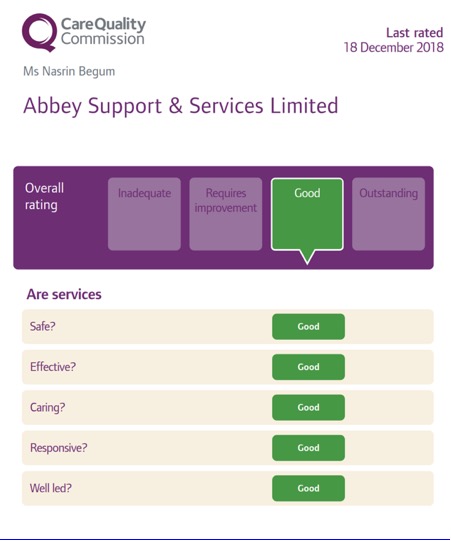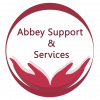Care Quality Commission (CQC)
What is the Care Quality Commission?
The Care Quality Commission (CQC) is the independent regulator of health and adult social care across England.
What is the purpose of the CQC?
In a nutshell, the CQC exists to ensure that social care providers (for children and adults), deliver high quality care, encouraging continual improvement, with safety, effectiveness and compassion as constant priorities.
What does the CQC do?
It registers care providers
This includes all Home (Domiciliary) Care Providers (and other organisations that are involved in health and social care) who employ the care workers and clinical professionals who provide care support. Home care agencies are commissioned to provide care in the client’s/patient’s own home.
It monitors and inspects the services on a regular basis, awarding a rating
As with TripAdvisor, all ratings are listed in the public domain for anyone to see, which is advantageous when comparing and selecting agencies to meet the needs of the client.
It takes action
The CQC aims to protect anyone using social care services that fall under its regulatory remit and so conducts regular inspections of all registered care providers, whilst also evaluating feedback and concerns raised.
It publishes its opinions
With stated values of Excellence, Caring, Integrity and Teamwork, the CQC devises and publishes what good and outstanding care looks like and determines the fundamental standards beneath which delivery of care should never fall.
This should be reassuring for care users and their families. It doesn’t just apply to those people whose care is being state-funded, but to self-funders also. If you are in this category, then you’ll potentially spend a very high proportion of your income and savings on later living care. You are therefore entitled to the security of knowing there is an organisation that will support you and encourage industry-wide commitment to high quality care.
CQC review and inspect five key areas in order to regulate services
Are they safe?
Safe: you are protected from abuse and avoidable harm.
Are they effective?
Effective: your care, treatment and support achieve good outcomes, helps you to maintain quality of life and is based on the best available evidence.
Are they caring?
Caring: staff involve and treat you with compassion, kindness, dignity and respect.
Are they responsive to people’s needs?
Responsive: services are organised so that they meet your needs.
Are they well-led?
Well-led: the leadership, management and governance of the organisation make sure it’s providing high-quality care that’s based around your individual needs, that it encourages learning and innovation, and that it promotes an open and fair culture.
How does CQC use the five key areas in their inspections?
Each of the five key questions is broken down into a further set of objectives. These our known as key Lines of Enquiry (kloes). When inspections are carried out, kloes are used to help decide what needs to be focused on. For example, the inspection team might look at how risks are identified and managed to help them understand whether a service is safe, caring, responsive, effective and well-led. There are separate kloes for each of the five key areas.
Using kloes assist CQC to ensure they are consistent in what they look at under each of the five key areas and they are able to focus is placed on areas of strength and weakness. For further information https://www.cqc.org.uk/about-us

Quick Links
Care Quality Commission (CQC)


